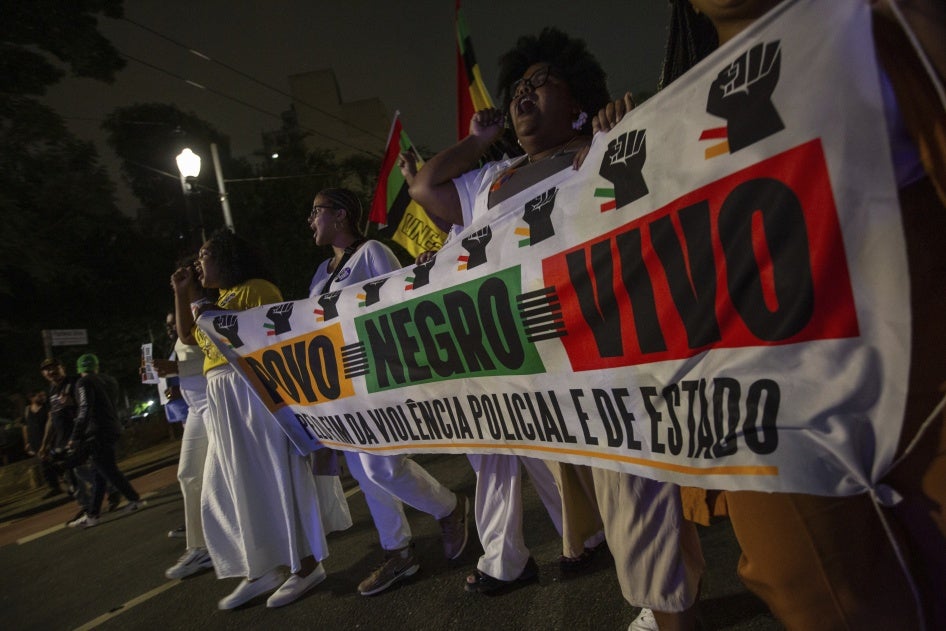On May 7, Brazil’s National Council of Prosecutors (CNMP, in Portuguese) published a resolution that seeks to improve investigations into police abuse, including killings by police.
Every year, Brazilian police officers kill more than 6,000 people, with people of African descent being three times more likely to become a victim than white individuals. Human Rights Watch has documented how inadequate investigations into those killings result in impunity for abuses in Brazil. A major reason is that the police investigate themselves.
Last month, that started to change.
On April 3, Brazil’s Supreme Court ordered prosecutors to lead investigations whenever there is “suspicion” of the involvement of law enforcement agents in an unlawful killing. Then, on April 29, the CNMP passed a resolution that detailed how prosecutors should carry out those investigations. The resolution was published on May 7.
For many years, Human Rights Watch has sought a change in Brazil’s law to ensure thorough, independent investigations into police killings.
We testified before the Supreme Court, met several times with the lead justice on the case, and presented recommendations in writing upon the justice’s request.
Human Rights Watch also talked repeatedly with the state prosecutor leading the drafting of the CNMP resolution, submitted recommendations, participated in a hearing with partner organizations, and signed a joint letter calling for its approval. In January, we met with Brazil’s attorney general and lobbied several members of the National Council of Prosecutors to urge them to pass the resolution.
After its approval, the state prosecutor told us that without Human Rights Watch’s pressure, “it [the resolution] would have not come out.”
The Supreme Court decision, along with stating that prosecutors lead investigations, incorporated several other HRW recommendations. These included requiring the preservation of evidence in accordance with international standards, improving data on police violence, expanding the use of body-worn and patrol car cameras, and strengthening mental health support for police officers.
Under the new resolution, prosecutors are now required to ensure the integrity of the chain of custody for evidence as well as the preservation of the crime scene. These are key investigative steps that are not followed in many instances, as our research has shown for many years. The resolution also grants victims’ families access to updated information about the investigations.
Still, the Supreme Court ruling has some drawbacks. It eliminated a temporary requirement that police in the state of Rio de Janeiro, where the court case originated, inform prosecutors of police operations before launching them, weakening oversight. The Court also removed a temporary ban on shooting suspects from helicopters and allowed police to use as “operational bases” schools or health units, “in cases of extreme necessity,” even though this endangers residents, including children.
In addition, the resolution said prosecutors should also open their own investigations, instead of solely relying on the police investigation, into cases of sexual violence, torture, and other abuses by law enforcement when there is “serious or systematic violations of fundamental rights.” This language is a setback compared to the original draft language, which called for prosecutor-led investigations into all such cases, without any conditions.
Still, the Supreme Court ruling and the CNMP resolution are crucial steps forward, but their potential impact will hinge on implementation. On April 11, Rio de Janeiro’s attorney general committed in a meeting with Human Rights Watch to provide the resources necessary so that prosecutors can lead investigations.
We will continue to advocate for effective enforcement of Supreme Court’s and the CNMP’s decisions throughout the country.
Conducting thorough, independent investigations into wrongdoings and punishing abusive officers is critical to making police forces more effective and improving the safety of all Brazilians.








